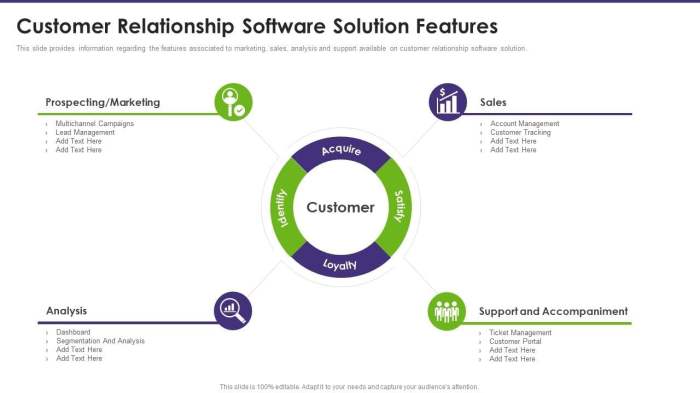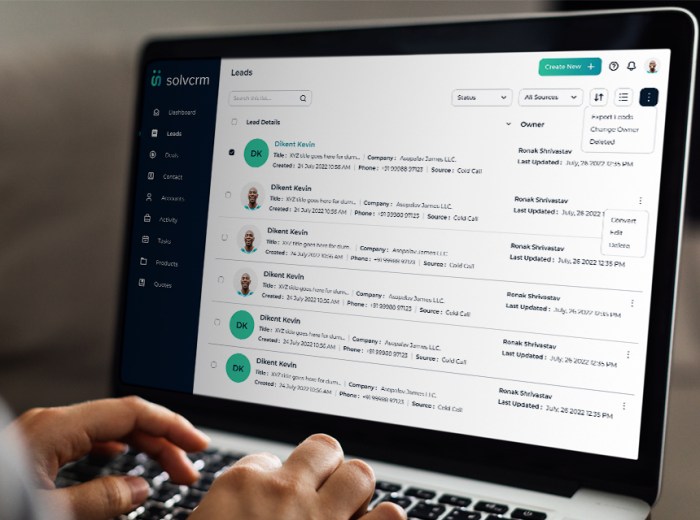In today’s competitive landscape, efficient and streamlined operations are paramount for businesses, particularly those offering field service solutions. Field service management (FSM) involves coordinating technicians, scheduling appointments, managing inventory, and tracking work orders – all while ensuring customer satisfaction. This is where Field Service CRM software steps in, revolutionizing how these businesses operate and providing a significant competitive edge.
This detailed guide explores the intricacies of Field Service CRM software, its key features, benefits, and how to choose the right solution for your business.
Understanding Field Service CRM Software
Field Service CRM software integrates Customer Relationship Management (CRM) functionalities with specific tools designed for managing field service operations. It centralizes all aspects of your field service business, providing a single source of truth for scheduling, dispatching, inventory management, and customer communication. This integrated approach eliminates data silos, improves communication, and streamlines workflows, ultimately boosting efficiency and profitability.
Key Features of Field Service CRM Software
- Scheduling and Dispatching: Optimize technician schedules based on real-time availability, skill sets, location, and customer preferences. Intelligent dispatching algorithms ensure efficient route planning and minimize travel time.
- Work Order Management: Create, assign, track, and manage work orders from initiation to completion. Capture all relevant information, including customer details, service requests, parts required, and technician notes.
- Inventory Management: Track inventory levels, manage parts, and automate ordering processes to avoid stockouts and ensure technicians have the necessary materials for each job.
- Mobile Workforce Management: Equip your technicians with mobile apps that provide access to real-time information, including schedules, work orders, customer details, and navigation. This enables efficient on-site work and improved communication.
- Customer Relationship Management (CRM): Integrate customer data, communication history, and service records to provide personalized service and build stronger customer relationships. This includes features like automated email and SMS communication.
- Reporting and Analytics: Gain valuable insights into operational efficiency, technician performance, and customer satisfaction through comprehensive reporting and analytics dashboards. This data-driven approach allows for informed decision-making and process optimization.
- Integration with Other Systems: Seamlessly integrate with other business systems, such as accounting software, ERP systems, and mapping services, for a holistic view of your business operations. This reduces manual data entry and improves data accuracy.
- Real-time Tracking and GPS: Monitor technician location in real-time using GPS tracking, improving dispatching efficiency and providing customers with estimated arrival times.
- Automated Notifications and Reminders: Automate appointment reminders, service alerts, and other notifications to keep customers informed and reduce missed appointments.
Benefits of Implementing Field Service CRM Software
The benefits of adopting Field Service CRM software extend across various aspects of your business. Here are some key advantages:
- Improved Efficiency and Productivity: Streamlined workflows and automated processes free up valuable time, allowing your team to focus on high-value tasks.
- Reduced Operational Costs: Optimize resource allocation, minimize travel time, and reduce inventory costs through efficient management.
- Enhanced Customer Satisfaction: Provide timely and personalized service, improve communication, and increase customer loyalty.
- Increased Revenue: Improved efficiency and customer satisfaction lead to increased revenue and profitability.
- Better Decision-Making: Data-driven insights from reporting and analytics enable informed decision-making and continuous improvement.
- Improved Technician Performance: Empower technicians with the tools and information they need to perform their jobs efficiently and effectively.
- Enhanced Collaboration: Improved communication and data sharing among team members foster collaboration and teamwork.
Choosing the Right Field Service CRM Software
Selecting the appropriate Field Service CRM software depends on your specific business needs and requirements. Consider the following factors:
- Business Size and Complexity: Choose a solution that scales with your business growth and can handle your current and future needs.
- Industry-Specific Features: Look for software with features tailored to your industry, such as healthcare, HVAC, or telecommunications.
- Integration Capabilities: Ensure the software integrates seamlessly with your existing business systems.
- User-Friendliness and Ease of Use: Choose a solution that is intuitive and easy for your team to use.
- Pricing and Support: Consider the cost of the software, including licensing fees, implementation costs, and ongoing support.
- Mobile Accessibility: Ensure the software offers robust mobile capabilities for your field technicians.
Frequently Asked Questions (FAQ): Field Service Crm Software
- Q: What is the difference between a CRM and a Field Service CRM? A: A standard CRM focuses on managing customer relationships. A Field Service CRM adds functionalities specifically designed for managing field service operations, such as scheduling, dispatching, and work order management.
- Q: How much does Field Service CRM software cost? A: Pricing varies depending on the vendor, features, and number of users. Expect a range from affordable monthly subscriptions to more enterprise-level solutions with higher costs.
- Q: Can Field Service CRM software integrate with my existing systems? A: Many Field Service CRM solutions offer integration capabilities with popular accounting software, ERP systems, and other business tools.
- Q: What are the key performance indicators (KPIs) to track with Field Service CRM? A: Key KPIs include first-time fix rate, customer satisfaction, average response time, technician utilization, and cost per service call.
- Q: How can I choose the best Field Service CRM for my business? A: Consider your specific needs, budget, and the features offered by different vendors. Look for a solution that is scalable, user-friendly, and integrates with your existing systems.
Conclusion
Field Service CRM software is a powerful tool that can significantly improve the efficiency, profitability, and customer satisfaction of field service businesses. By centralizing operations, automating processes, and providing valuable insights, these solutions empower businesses to optimize their field service operations and gain a competitive edge. Choosing the right software requires careful consideration of your specific needs and a thorough evaluation of available options.
Investing in a robust Field Service CRM solution is a strategic move that can drive significant growth and success for your business.
References
While specific software recommendations are avoided to maintain objectivity, general information on Field Service Management and CRM can be found through reputable sources such as Gartner, Forrester, and industry-specific publications. Searching for “Field Service Management Best Practices” or “Field Service CRM Software Reviews” will yield many relevant results.
Call to Action
Ready to transform your field service operations? Explore the leading Field Service CRM solutions available today and discover how you can streamline your processes, improve customer satisfaction, and boost your bottom line. Contact us to discuss your specific needs and find the perfect solution for your business.
FAQs
What are the key features of field service CRM software?

Source: slidegeeks.com
Key features typically include appointment scheduling, dispatch optimization, technician tracking, inventory management, customer communication tools, reporting and analytics, and integration with other business systems.
How much does field service CRM software cost?
Pricing varies widely depending on the features, number of users, and vendor. Expect a range from subscription-based models with monthly fees to more comprehensive, upfront purchase options.
How do I choose the right field service CRM software for my business?

Source: solvcrm.co
Consider your specific business needs, the size of your team, the level of integration required with existing systems, and your budget. Research different vendors and compare their features and pricing before making a decision.

Source: medium.com
Can field service CRM software integrate with my existing systems?
Many field service CRM solutions offer integration capabilities with various systems, including accounting software, inventory management systems, and other business applications. Check the vendor’s specifications to ensure compatibility.
